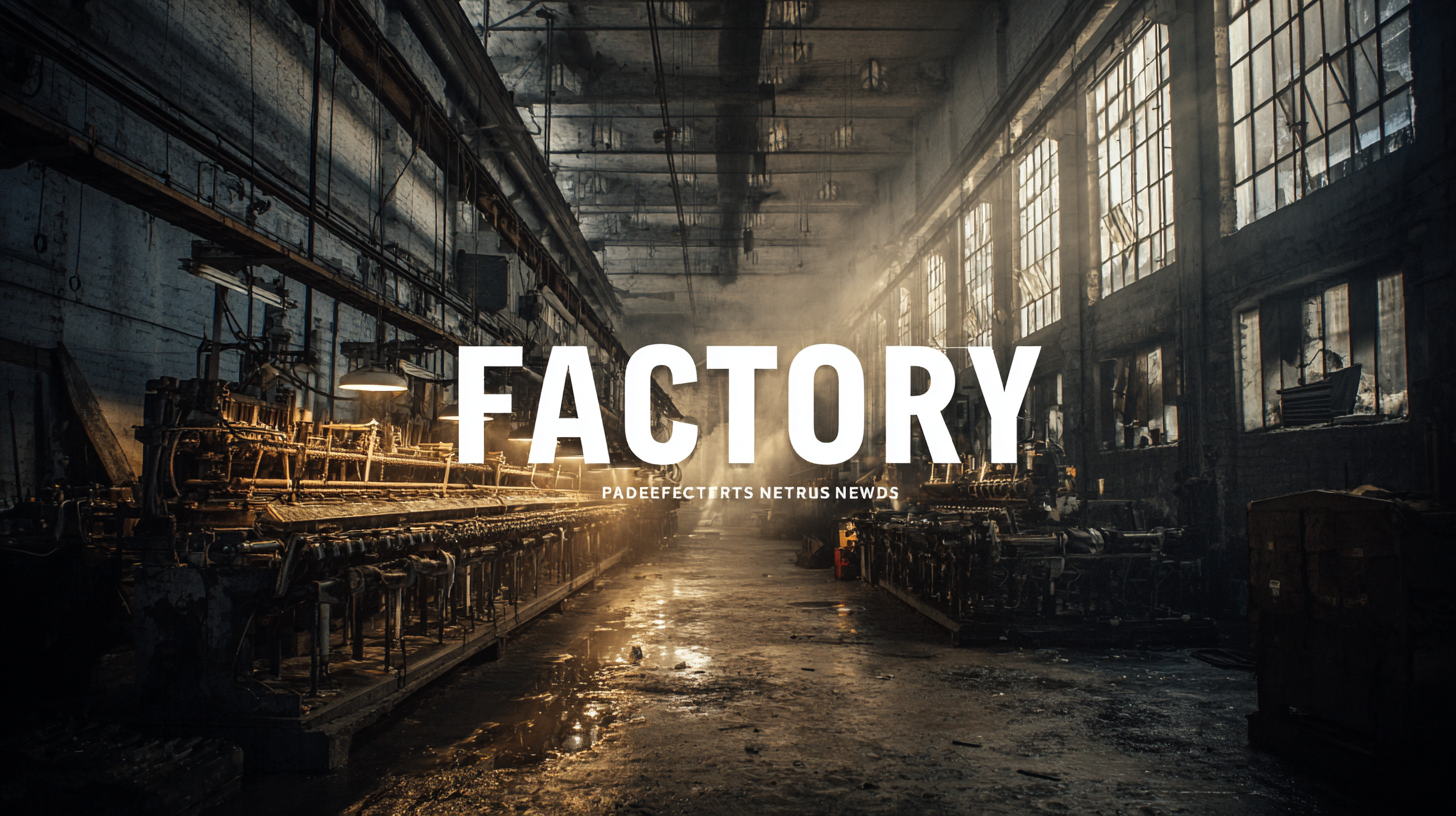
Your Ultimate Guide to Finding the Best Factory for Your Business Needs
In today's competitive landscape, selecting the right factory for your business needs can be a daunting task. Whether you're a startup looking to scale production or an established company seeking to diversify your suppliers, the choice of factory plays a critical role in your operational success. This ultimate guide will walk you through the essential steps and considerations to help you identify the best factory suited to your requirements.
 From evaluating the factory's capabilities and certifications to understanding their production processes and communication practices, we will cover all necessary aspects. By following these guidelines, you can ensure that your partnership with a factory not only meets your expectations but also contributes to your overall business growth and efficiency.
From evaluating the factory's capabilities and certifications to understanding their production processes and communication practices, we will cover all necessary aspects. By following these guidelines, you can ensure that your partnership with a factory not only meets your expectations but also contributes to your overall business growth and efficiency.
Identifying Your Business Requirements: Key Factors for Choosing a Manufacturer
When choosing a manufacturer for your business, identifying your specific requirements is crucial. According to a report by McKinsey & Company, 70% of companies that properly define their operational needs ultimately experience increased productivity and reduced costs. Key factors to consider include production capacity, quality assurance processes, and technological capabilities. For instance, if you require high-volume manufacturing, selecting a factory that specializes in mass production can lead to significant economies of scale.
Additionally, consider the manufacturer’s location and supply chain logistics. A study by Deloitte found that 79% of companies listed supply chain efficiency as a top priority in their manufacturing choices. Proximity to suppliers and customers can reduce lead times and shipping costs, ultimately benefiting your bottom line. Quality certification is also essential; ISO-certified manufacturers are proven to maintain higher standards in quality control, which can further enhance your product’s market competitiveness. Evaluating these factors comprehensively will enable you to select a factory that aligns with your business goals and quality expectations.
Researching Potential Manufacturers: Strategies for Effective Evaluation
When searching for the right manufacturer for your business, effective evaluation is key to ensuring that your choice aligns with your needs and expectations. Start by conducting thorough research on potential manufacturers. Utilize online directories, industry forums, and trade shows to build a list of candidates. Once you have a shortlist, delve deeper into their capabilities, production capacity, and quality assurance processes.
**Tip:** Create a checklist of critical factors such as production timelines, minimum order quantities, and communication responsiveness. This will streamline your evaluation process and help you make more informed decisions.
Next, it's crucial to assess a manufacturer's reputation. Look for customer reviews, testimonials, and case studies that reflect their track record. Don’t hesitate to reach out to past clients for first-hand experiences, which can provide insights into the manufacturer’s reliability and service quality.
**Tip:** Organize a factory visit to observe the production processes and working conditions. This firsthand experience will give you a better understanding of their operations and help you identify any potential red flags.
Your Ultimate Guide to Finding the Best Factory for Your Business Needs
This bar chart illustrates the evaluation criteria considered when researching potential manufacturers. The criteria include Quality, Cost, Delivery Time, Communication, and Experience, with respective evaluations scored out of 100.
Assessing Manufacturing Capabilities: Questions to Ask Before Committing
When exploring the right factory for your business needs, assessing manufacturing capabilities is crucial. Key questions should include inquiries about production capacity, technology used, and compliance with industry standards. According to a recent McKinsey report, companies that carefully evaluate their suppliers' capabilities can improve their operational efficiency by up to 30%. Understanding a factory's production processes and quality control measures not only helps ensure product quality but also enhances supply chain resilience.
Tip: Before making a commitment, request detailed documentation of the factory's certifications and inspection reports. This information will provide insight into their operational standards and regulatory compliance, which can significantly affect your product's marketability.
Additionally, consider the factory's flexibility in adapting to changes in order volume or product specifications. A survey by Deloitte revealed that 75% of manufacturers believe flexibility is vital for achieving competitive advantage. A factory that can quickly pivot to accommodate your needs will help avoid delays and maintain a smooth production flow.
Tip: Engage in a trial order to assess the factory's turnaround time and responsiveness to feedback. This real-world evaluation can be invaluable in determining whether they are the right partner for your business.

Quality Control Standards: Ensuring Product Consistency and Reliability
Quality control is a critical aspect of manufacturing, ensuring that products meet the established standards for consistency and reliability. As companies increasingly focus on building robust supply chains, understanding the quality control processes becomes paramount. This is particularly true in industries like automotive and electronics, where the stakes for product reliability are high. Recent developments highlight the importance of adhering to rigorous standards to enhance product quality and, ultimately, consumer trust.
In the automotive sector, advancements in technology necessitate a comprehensive understanding of the product development process, encompassing stages from initial design to market launch. Each phase involves meticulous quality checks to mitigate risks associated with product failures. Manufacturers must adopt proactive quality control measures, including third-party evaluations, to confirm compliance with international manufacturing standards. This commitment to quality not only bolsters a brand's reputation but also positions it advantageously in a competitive marketplace.

Building Strong Relationships: Effective Communication with Your Manufacturer
Effective communication with your manufacturer is imperative for building strong, long-lasting relationships that can significantly impact your business's success. According to a report by the Institute of Supply Management, 75% of companies cite communication as a key factor in achieving successful supplier relationships. When discussing project specifics, it's crucial to establish clear expectations regarding timelines, quality standards, and cost structures. This proactive approach not only helps in preventing misunderstandings but also sets a solid foundation for collaboration.
Additionally, regular check-ins and updates can enhance mutual understanding and foster trust. A study from Deloitte found that organizations that maintain consistent communication with their manufacturers experience 30% fewer disruptions in their supply chain. Utilizing various communication tools, from emails to video conferences, can cater to different preferences and ensure that both parties stay aligned throughout the production process. By prioritizing effective communication, businesses can navigate challenges more efficiently, leading to increased innovation and overall satisfaction in the partnership.
